Ditapis dengan
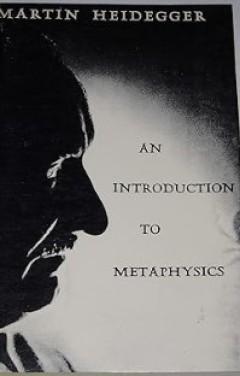
An Introduction to Metaphysics
Contains a series of lectures delivered by Heidegger in 1935 at the University of Freiburg. In this work Heidegger presents the broadest and most intelligible account of the problem of being, as he sees this problem. First, he discusses the relevance of it by pointing out how this problem lies at the root not only of the most basic metaphysical questions but also of our human existence in its p…
- Edisi
- -
- ISBN/ISSN
- 030007405
- Deskripsi Fisik
- x + 214 pg.; 20,5 cm.
- Judul Seri
- -
- No. Panggil
- 110 HEI m
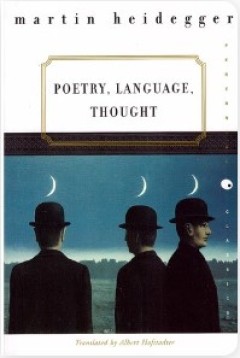
Poetry, Language, Thought
Poetry, Language, Thought collects Martin Heidegger's pivotal writings on art, its role in human life and culture, and its relationship to thinking and truth. Essential reading for students and anyone interested in the great philosophers, this book opens up appreciation of Heidegger beyond the study of philosophy to the reaches of poetry and our fundamental relationship to the world. Featuring …
- Edisi
- First Published
- ISBN/ISSN
- 0-06-093728-9
- Deskripsi Fisik
- xxv + 227 pgs.; 20,5 cm.
- Judul Seri
- -
- No. Panggil
- 808.1 HEI p

On Time and Being
- Edisi
- First Published
- ISBN/ISSN
- 0-06-131941-4
- Deskripsi Fisik
- xi + 84 pgs.; 20 cm.
- Judul Seri
- -
- No. Panggil
- 193 HEI o
- Edisi
- First Published
- ISBN/ISSN
- 0-06-131941-4
- Deskripsi Fisik
- xi + 84 pgs.; 20 cm.
- Judul Seri
- -
- No. Panggil
- 193 HEI o
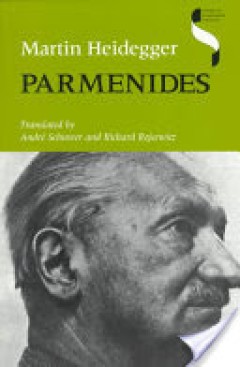
Parmenides
Parmenides, a lecture course delivered by Martin Heidegger at the University of Freiburg in 1942-1943, presents a highly original interpretation of ancient Greek philosophy. A major contribution to Heidegger's provocative dialogue with the pre-Socratics, the book attacks some of the most firmly established conceptions of Greek thinking and of the Greek world. The central theme is the question o…
- Edisi
- -
- ISBN/ISSN
- 025332726
- Deskripsi Fisik
- xv + 170 pg.;
- Judul Seri
- -
- No. Panggil
- 182.3 HEI p
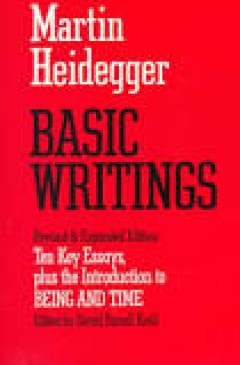
Basic Writings From Being and Time (1927) to The Task of Thinking (1964)
Heidegger's most popular collection of essential writings, now revised and expanded -- includes the 10 key essays plus the introduction to Being and Time.
- Edisi
- -
- ISBN/ISSN
- 006063846X
- Deskripsi Fisik
- xvi + 397 pg.; 20,5 cm.
- Judul Seri
- -
- No. Panggil
- 193 HEI b
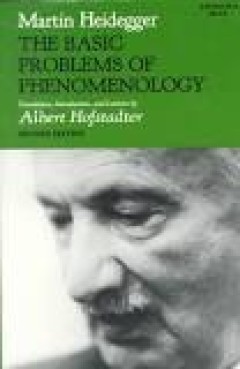
The Basic Problems Of Phenomenology
A lecture course that Martin Heidegger gave in 1927, The Basic Problems of Phenomenology continues and extends explorations begun in Being and Time. In this text, Heidegger provides the general outline of his thinking about the fundamental problems of philosophy, which he treats by means of phenomenology, and which he defines and explains as the basic problem of ontology.
- Edisi
- -
- ISBN/ISSN
- 0253176867
- Deskripsi Fisik
- xxxi + 396 pg.; 24 cm.
- Judul Seri
- -
- No. Panggil
- 142.7 HEI b
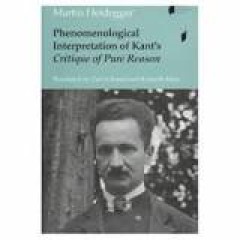
Phenomenological Interpretation of Kant's Critique of Pure Reason
The text of Martin Heidegger’s 1927–28 university lecture course on Emmanuel Kant’s Critique of Pure Reason presents a close interpretive reading of the first two parts of this masterpiece of modern philosophy. In this course, Heidegger continues the task he enunciated in Being and Time as the problem of dismatling the history of ontology, using temporality as a clue. Within this context …
- Edisi
- -
- ISBN/ISSN
- 0253332583
- Deskripsi Fisik
- xxi + 296 pg.; 24 cm.
- Judul Seri
- -
- No. Panggil
- 121 HEI p

Essence of Truth: On Plato's Cave Allegory and The Aetetus
- Edisi
- -
- ISBN/ISSN
- 0826459234
- Deskripsi Fisik
- xii + 252 pg.; 23,5 cm.
- Judul Seri
- -
- No. Panggil
- 121 HEI e
- Edisi
- -
- ISBN/ISSN
- 0826459234
- Deskripsi Fisik
- xii + 252 pg.; 23,5 cm.
- Judul Seri
- -
- No. Panggil
- 121 HEI e
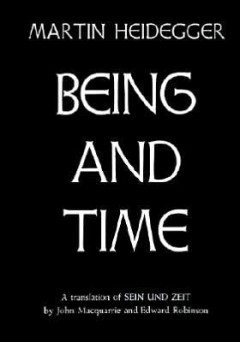
Being and Time
One of the most important philosophical works of our time, a work that has had tremendous influence on philosophy, literature, and psychology, and has literally changed the intellectual map of the modern world.
- Edisi
- -
- ISBN/ISSN
- 9780061575594
- Deskripsi Fisik
- xxvi + 589 pg.; 21,5 cm.
- Judul Seri
- -
- No. Panggil
- 110 HEI b
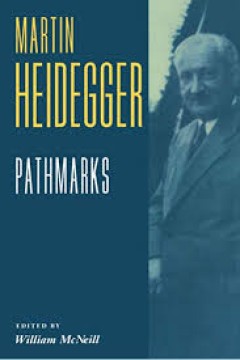
 Karya Umum
Karya Umum  Filsafat
Filsafat  Agama
Agama  Ilmu-ilmu Sosial
Ilmu-ilmu Sosial  Bahasa
Bahasa  Ilmu-ilmu Murni
Ilmu-ilmu Murni  Ilmu-ilmu Terapan
Ilmu-ilmu Terapan  Kesenian, Hiburan, dan Olahraga
Kesenian, Hiburan, dan Olahraga  Kesusastraan
Kesusastraan  Geografi dan Sejarah
Geografi dan Sejarah